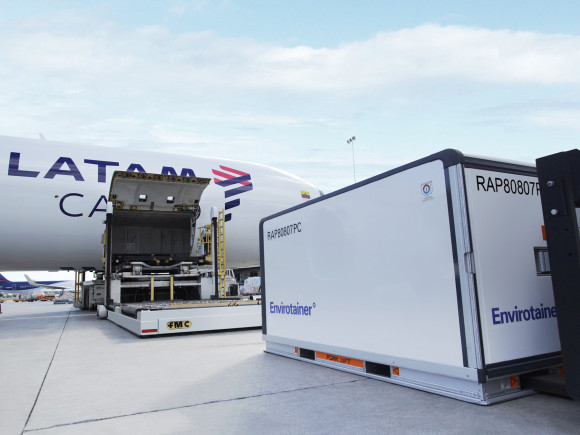The top minds of the pharma industry met in Switzerland during the three days of LogiPharma, one of the world’s leading pharma supply chain events. Among the factors that make this fair so relevant and attractive is the number and variety of the topics covered: new trends, practices and methods used in the pharma industry supply chain. The event raises the interest of shippers, agents, technology and packaging suppliers, airport and airline representatives, and tracking companies, among others.
LATAM Cargo attended as part of its strategy to consolidate its PHARMA product, which has been specifically designed to handle and manage these delicate products. One of the attributes that sets LATAM Cargo apart from other attendees is the CEIV Pharma certification awarded by the International Air Transport Association, IATA, making it the first airline in the Americas to receive it. Furthermore, the same certification was bestowed upon our handling service in Miami.
“This certification is the reflection of the world-class standards applied to our processes, which include contingency plans, continuous improvement programs and highly trained staff in accordance with the plan defined in the certification. The efforts put in to certify both our airline and our handling service in Miami are proof of our ongoing evolution to satisfy the needs of our customers,” said Jorge Carretero, LATAM Cargo Assistant Sales Manager – Central Europe.
As a leader in air freight from, to and within Latin America, Latam Cargo moderated a round table that discussed issues like the right use of the product, the strict control of the cold chain, the structure of contingency plans and five other topics of interest for decision-makers.
“If your cargo is bound for South America, LATAM Cargo certifies your peace of mind,” Mr Carretero added.
About CEIV Pharma
IATA’s Center of Excellence for Independent Validators on Pharmaceutical Handling (CEIV Pharma) addresses the pharmaceutical industry’s need for increased safety, security, compliance and efficiency in the pharma supply chain. These requirements become even more important considering that approximately 30% of pharmaceuticals are damaged by problems in the supply chain and nearly 20% of temperature-sensitive products are affected by disruptions in the cold chain, according to IATA.
Based on current regulations and standards, this certification accredits international procedures and rules according to the standards required by the manufacturers of pharma products.
